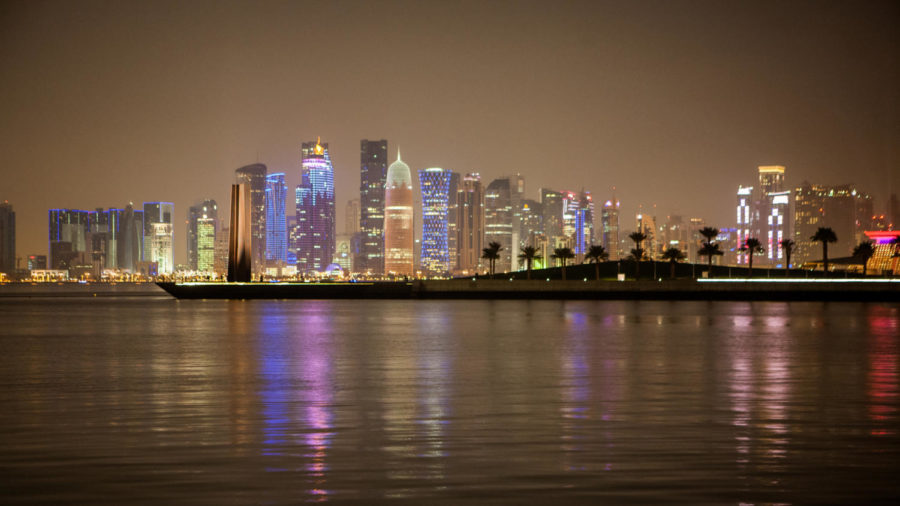The World Cup commences
November 19, 2022
Several controversies have arisen as the World Cup kicks into action in Qatar. The first game of the tournament opened on Nov. 20 with Qatar taking on Ecuador.
The first controversy is how the World Cup even got to Qatar in the first place. After the announcement of the 2022 World Cup being located in Qatar 12 years ago, many have been wondering how a small Arab country managed to win the votes of the FIFA representatives. Allegations surrounding corruption, vote-swapping and links to trade deals appeared immediately.
According to the United States Department of Justice, FIFA officials took bribes in order to secure the hosting rights, both from Qatar for the 2022 tournament but also from Russia for the 2018. Although the United States is adamant in this declaration, there is no international confirmation of bribes being accepted.
Qatar is an interesting venue for the World Cup. With a small sports and even smaller soccer culture, Qatar seemed an unlikely place to host. The climate is rather brutal for professional athletes, with hot-desert like conditions that make it unfavorable to play in typical open-aired stadiums. Qatar seems to have managed around this by building enclosed stadiums with air conditioning, although this quickly came under scrutiny of climate activists.
Being announced as the host of the World Cup ultimately put Qatar under the microscope of the international community. After its introduction twelve years ago, the nation’s human rights issues began to emerge, as spoken about in a previous article along with the treatment of migrant workers, the rights of women and the treatment of the LGBTQ+ community.
The treatment of the LGBTQ+ community seems to have become a large controversy internationally. In Qatar, same-sex relations are illegal, and being convicted can land you sentenced to seven years of prison. A World Cup ambassador from Qatar was quoted saying violently homophobic things towards the community.
Human Rights Watch also reported that some member from the Qatari community were detained, and abuses by the country’s police service for associations with same-sex activity.
Many players and countries have expressed their discontentment with the attitudes coming from Qatar, and the United States even redesigned their crest to incorporate the rainbow flag. It’s a huge statement coming from the men’s team, which has the new crest posted in the Al Gharrafa SC stadium where the team played.
Qatar also warned fans against bringing in any pork or anything sexual.
The last controversy takes the form of alcohol. It’s no secret that, at least in Europe and the United States, drinking is a large part of sports culture. Despite this, a Qatari World Cup organizer asserted that alcohol is not a part of Qatar’s culture, and therefore will not be easily accessible during the tournament. Officials have reportedly moved beer tents into secluded areas, increasing the price on alcohol and limiting customers to four drinks in order to limit consumption.
In response to this, some fans have created an underground map of alcohol, outlining places in Qatar where fans can get a drink despite the culture against alcohol. It’s been shared around the internet, although a warning is tacked onto the trend regarding the safety of traveling around the area.
In response to the negative press, it seems that Qatar has been trying to improve their image on social media. Videos have been appearing across different platforms that seem to show parades of fans for different countries, however many of the fans appear to be Qatari. It has left people questioning whether or not the videos are authentic and if Qatar has paid some of its citizens to pretend to be cheering for other countries.
Despite all of this, the World Cup has commenced. Besides watching along to see how the United States performs this year, it also may be helpful to watch along to see how these controversies continue to flesh out, and if any more come to light.





















